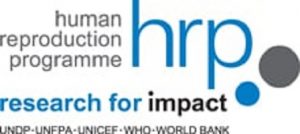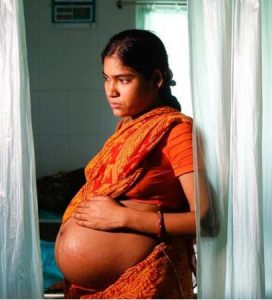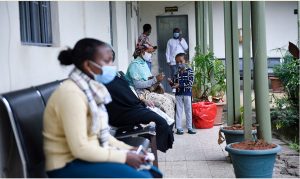Caesarean section rates continue to rise, amid growing inequalities in access: WHO
This article was originally published by the World Health Organization. Rising rates suggest increasing numbers of medically unnecessary, potentially harmful procedures According to new research from the World Health Organization (WHO), caesarean section use continues to rise globally, now accounting for more than 1 in 5 (21%) of all childbirths. This number is set to continue … Continued
Why we need to focus on quality care for women and newborns
This article was originally published by the World Health Organization. 4 May 2021 l Departmental news l Reading time: 2 min (606 words) Each year, between 5.7 and 8.4 million people are dying due to poor quality care in low- and middle-income countries, accounting for up to 15 percent of their overall deaths. Lost productivity due … Continued
New toolkit aims to improve global birth defects surveillance
This article was originally published by WHO. Birth defects or congenital anomalies are an invisible tragedy around the world. Every year an estimated 295 000 newborns die due to congenital anomalies during the first 28 days of life. The most common, severe congenital anomalies are heart defects, neural tube defects and Down’s syndrome. Congenital anomalies … Continued
World Health Assembly charts course for COVID-19 response and global health priorities
This article was originally published by the World Health Organization. As health leaders prepare to gather for a virtual session of the resumed 73rd World Health Assembly (WHA), WHO has three messages to share. First, we can beat COVID-19 with science, solutions and solidarity. More than 47 million COVID-19 cases have now been reported to WHO, … Continued
Steroids boost survival of preterm babies in low-resource settings, new study finds
This article was originally published by WHO. Accurate pregnancy dating and quality care combined with the steroids are key to survival The results of a new clinical trial, published today in the New England Journal of Medicine, show that dexamethasone—a glucocorticoid used to treat many conditions, including rheumatic problems and severe COVID-19— can boost survival of … Continued
Marketing of breastmilk substitutes during the COVID-19 pandemic
This article was originally published by The Lancet By Christoffer van Tulleken, Charlotte Wright, Amy Brown, David McCoy and Anthony Costello It is of concern that the US$70 billion infant formula industry has been actively exploiting concerns about COVID-19 to increase sales, in violation of the WHO International Code of Marketing of Breast-milk Substitutes (the … Continued
One stillbirth occurs every 16 seconds, according to first ever joint UN estimates
This article was originally published by the World Health Organization Almost 2 million babies are stillborn every year – or 1 every 16 seconds – according to the first ever joint stillbirth estimates released by UNICEF, WHO, the World Bank Group and the Population Division of the United Nations Department of Economic and Social Affairs. The vast majority of stillbirths, … Continued
New findings confirm global disruptions in essential health services for women and children from COVID-19
This article was originally published by the GFF Health impacts of lockdowns, economic losses in poor nations require targeted action and vigilance to save lives and protect against a worsening crisis. September 18, 2020 – Essential health services for women and children in many lower-income countries are being disrupted by COVID-19, according to new findings … Continued
Coronavirus May Increase Premature Births, Studies Suggest
This article was originally published by the New York Times/Roni Caryn Rabin. Pregnant women who are infected with the coronavirus and hospitalized are at risk for developing serious complications, and may face an elevated risk for delivering their babies prematurely, according to new studies from the Centers for Disease Control and Prevention. They may also … Continued
Stillbirth rate rises dramatically during pandemic
A slew of studies from around the world has reported a disturbing trend: since the coronavirus pandemic started, there has been a significant rise in the proportion of pregnancies ending in stillbirths, in which babies die in the womb. Researchers say that in some countries, pregnant women have received less care than they need because … Continued









